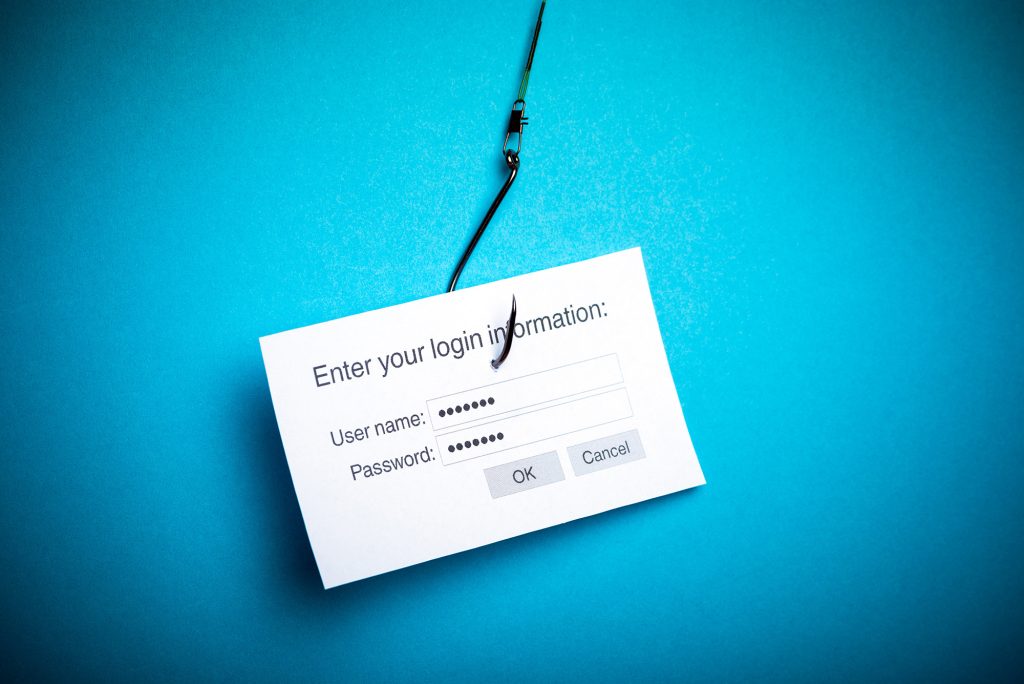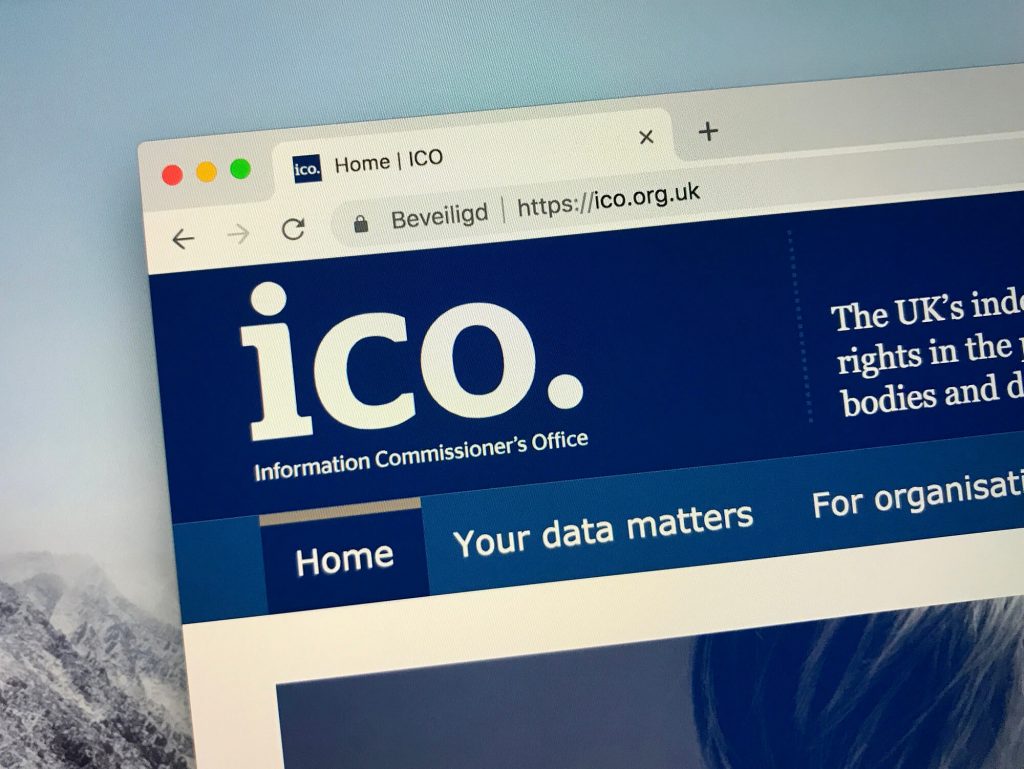By not putting adequate processes and training in place, organisations are leaving customers open to an increased risk of cyber scams and avoidable mistakes that lead to data breaches. If you are a victim of a data protection failure, check out our current group actions below to see if we are running a claim related to that specific breach.
A data breach refers to any situation where data has been put at risk. A data hack happens when criminals break into an organisation’s systems to steal information. The impact of a data hack can be devastating. But despite this, cybercriminals are still getting away with billions of pounds worth of records each year.
To make matters worse, this information is often used to commit further crimes against victims of the initial breach. Stolen data is easy to buy on the dark web, so if you are the victim of a data privacy violation, it is quite likely that different criminals could be trying to use your data against you.
Stolen data is also used in batches over time, and the impact of a data hack might not be immediately apparent. So, it’s no wonder that people commonly suffer emotional anguish, anxiety and stress after a data hack.
Cybercrime is on the rise. And most organisations have suffered at least one attack. But too many companies are falling short when it comes to establishing robust data protection processes – and this is making it easier for online criminals. So, even if an organisation has suffered a cyberattack, if it was negligent in safeguarding your data, it must be held liable.
You might be eligible for data hack compensation if an organisation has failed to protect your personal data. At KP Law, our data breach lawyers help people to make successful data hacking claims to compensate for their loss and distress.
KP Law is a group action law firm. With a group action claim, you and the other victims join together and fight to get compensation. Group actions can be a powerful tool and can have a bigger impact than a single claim.
If you are a victim of a data protection failure, check out our current group actions to see if we are running a claim related to that specific breach.
If you are involved in a potential group action not listed below, please contact us and tell us about it! Where enough people come forward, we may launch a new claim.
We do not take on individual cases.
Don’t let the fear of costs stop you getting the justice you deserve. Contact us today and let us fight for you.
In many cases, data hacks and cyber-attacks happen because of a failure to implement reasonable and robust processes. Common methods employed by hackers include:
Phishing fraudsters contact you using emails, texts, and other forms of communication. They disguise themselves as someone you trust. Their goal is to trick you into giving them your personal information (e.g. usernames, passwords, credit card details, etc.) and steal from you.
The impact of phishing can be devastating. Victims can go on to suffer from distress and/or psychological trauma because of having their details stolen and used in fraudulent activity. Existing mental health conditions can also be exacerbated. So, even if you get your money back, the impact of phishing can be devastating.
Many phishing scams are highly targeted and come after a person’s data has been stolen in a data breach. Criminals use the data exposed in breaches (e.g. names, account info and other personal data) to trick people into believing they are genuine.
Stolen data is easy to buy on the dark web, so if you are the victim of a data privacy violation, it is quite likely that different criminals could be trying to use your data against you.
Stolen data is also used in batches over time, so the impact of a data breach might not be immediately apparent.
IF YOU ARE THE VICTIM OF A PHISHING SCAM BECAUSE OF POOR DATA PROTECTION PROCESSES, WE CAN HELP YOU TO CLAIM COMPENSATION FROM THE ORGANISATION RESPONSIBLE.
If you have been the victim of phishing, or attempted phishing, you should contact Action Fraud ASAP. If you have lost money as a result of the scam, you must also report it as a crime.
A ransomware attack happens when criminals infect an organisation’s systems and prevent or limit access unless a ransom is paid. Ransom may also be requested to stop the criminals releasing sensitive data into the public domain.
Finding out that your personal data has been held hostage in a ransomware violation can be extremely distressing. Especially where you trusted an organisation to look after it.
To make matters worse, if this information is eventually breached, it may be used to commit further crimes against you. So it’s no wonder that people commonly suffer emotional anguish, anxiety and stress after a ransomware data hack.
You might be eligible for ransomware compensation if an organisation has failed to protect your personal data. Stolen data is easy to buy on the dark web, so if you are the victim of a ransomware violation, it is quite likely that different criminals could be trying to use your data against you. Stolen data is also used in batches over time, so the impact of a data hack might not be immediately apparent.
At KP Law, our data breach lawyers help people to make successful ransomware claims to compensate for their loss and distress.
IF YOU ARE THE VICTIM OF RANSOMWARE BECAUSE OF POOR DATA PROTECTION PROCESSES, WE CAN HELP YOU CLAIM COMPENSATION FROM THE ORGANISATION RESPONSIBLE.
A form of identity theft, account takeover fraud (ATO) happens when a criminal gains access to an individual’s account and steals from them. The worry caused by takeover fraud can be significant. Some victims suffer emotional stress and distress, and existing mental health conditions can be exacerbated. So, even if you get your money back, the impact of takeover fraud can be devastating. As more and more people shop and bank online, takeover fraud is on the rise.
Many takeover scams are highly targeted and come after a person’s data has been stolen in a data breach. Criminals use the data exposed in breaches (often usernames and passwords) to access a person’s online accounts. This is possible as people often use the same login details for multiple accounts.
You can ask your bank/online provider to reimburse the stolen funds after experiencing takeover fraud and they can only refuse to reimburse stolen funds where you have shown a very significant degree of carelessness. If the bank refuses, you can take your case to the Financial Ombudsman.
You can also claim compensation if the crime happened because the necessary security processes were not in place. Or if another organisation breached your data, and this was used against you.
IF YOU ARE THE VICTIM OF A TAKEOVER SCAM BECAUSE OF POOR DATA PROTECTION PROCESSES, WE CAN HELP YOU TO CLAIM COMPENSATION FROM THE ORGANISATION RESPONSIBLE.
If you have been the victim of takeover fraud, or attempted takeover fraud, you should contact Action Fraud ASAP. If you have lost money as a result of the scam, you must also report it as a crime.
We are one of the most experienced multi-claimant law firms in the UK.
We represent clients in group actions with innovation, resources, and expertise.
We work with expert barristers to ensure you get the very best level of legal support available.
We have all the resources and global expertise necessary to take on complicated cases and win.
We have offices in London, Liverpool, Manchester, and Birmingham, and the technology to provide a nationwide service to clients across England & Wales.
We use technology to deliver a better legal experience to our clients.
We work on a no-win, no-fee basis.
We make the process straightforward and hassle-free.
While each case is judged on its own merits, there are some things we would typically look for when it comes to when claiming compensation following a data breach, cybercrime or other GDPR violation:
With stolen data, cybercriminals can make purchases using your bank and credit cards, apply for credit in your name, set up fraudulent bank accounts and access your existing online accounts.
GDPR failures, cybercrime and data breaches can have a significant impact on you, both mentally and physically. They can cause or exacerbate anxiety, stress and other psychological conditions.

In today’s digital world, personal data has become one of the most valuable commodities—especially for cybercriminals. From financial details to personal information and even login credentials, hackers actively seek out this information to commit fraud, identity theft, and other illegal activities. Stolen data is bought and sold on the dark web, fuelling a vast underground economy where criminals profit at the expense of unsuspecting victims. But why is your personal data so valuable to them?

In today’s digital landscape, safeguarding personal information is more critical than ever. A data breach occurs when unauthorised individuals gain access to confidential data, leading

The Information Commissioner’s Office (ICO) has launched a joint investigation into the 23andMe data breach with the Office of the Privacy Commissioner of Canada (OPC).
KP Law has some of the most skilled consumer-rights lawyers in England and Wales. Here are just some of our success stories.
With innovation, resources and expertise, KP Law fights for justice for each and every client.